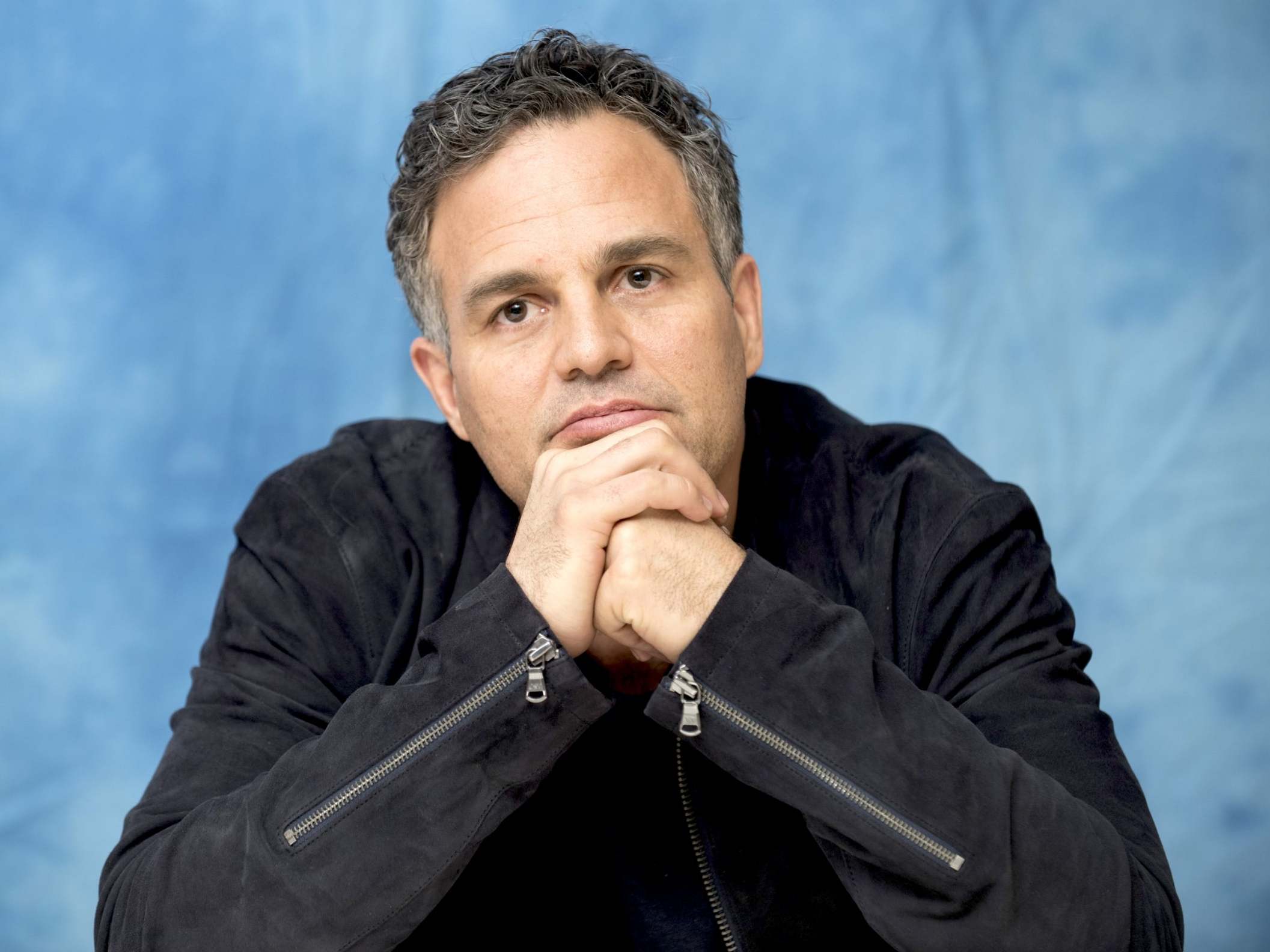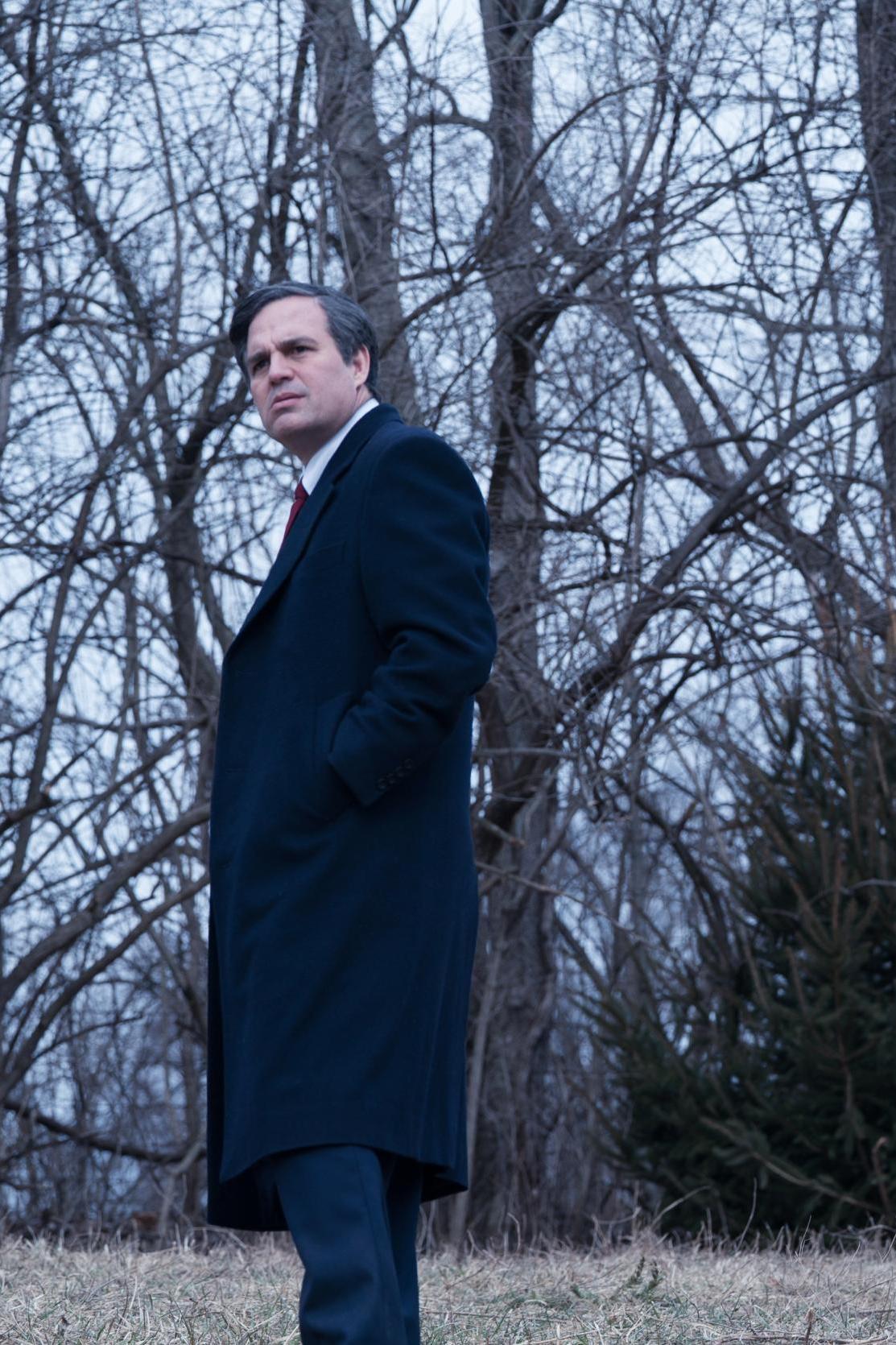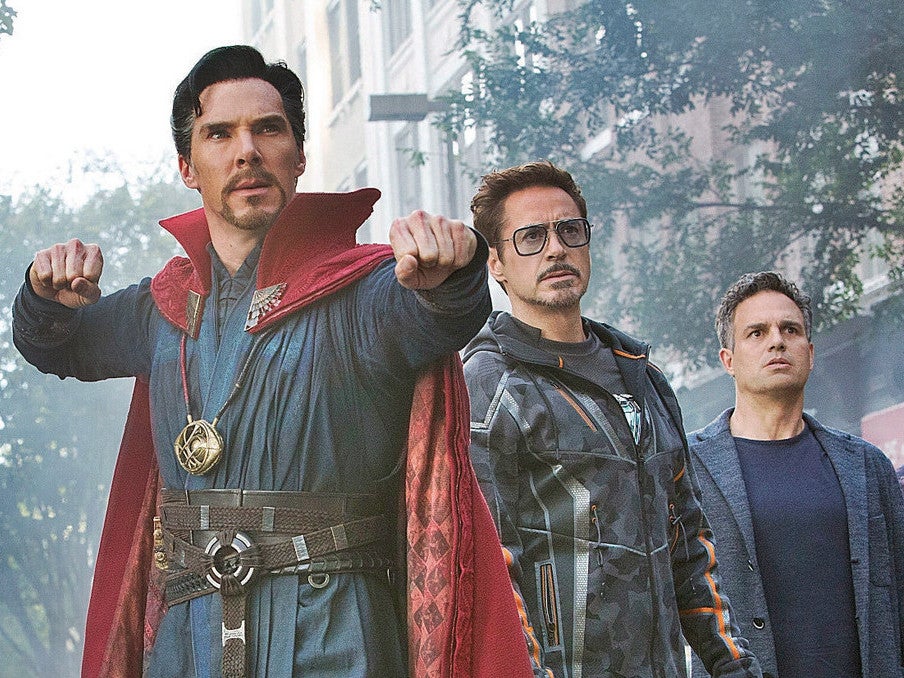Mark Ruffalo: ‘Hollywood has been white supremacist for 100 years’
The Avengers star talks to Patrick Smith about why the whole culture has to change, the dangers of re-electing Trump, his new film ‘Dark Waters’ and how personal tragedy changed him as a human being and actor


Mark Ruffalo is angry. “Donald Trump is public enemy number one,” says the man who plays Hulk in the Avengers films, leaning forward in his chair. “Everything that comes out of his mouth is a lie. This dude is standing in the way of anything significant happening in the world as far as climate change is concerned. It’s f***ing terrifying and it keeps me up at night. Most people don’t realise what’s coming. Countries are freaking out about Syrians coming, a few thousand Syrians. We are approaching mass extinctions, food systems failing, hundreds of millions of displaced people looking for places that are hospitable.” He pauses, breathes. “In my country, half of the political system doesn’t believe in [climate change], in science. I’m inviting the rest of the world to get involved in our next election, because the fate of the world is in the f***ing balance. And you can print that.”
Lacking the protective carapace that film stars tend to bring to interviews – that mix of rehearsed anecdotes and smiling reticence – Ruffalo is as passionate and politically minded as he is charming. At 52, he looks great. Dressed in a white shirt, his hair tousled and peppered with grey, he is trim and tanned, with a kind, crumpled face and dark penetrating eyes that are at once concerned and unsuspicious. He hasn’t shaved.
We’re in a hotel in central London to discuss his excellent new film Dark Waters. Based on a New York Times long read, this is the true story of corporate defence attorney-turned-environmental activist Robert Bilott and his struggle to expose the DuPont chemical company, which used toxic materials in a number of its products despite knowing full well how harmful they were. Ruffalo, a long-time environmental activist himself, not only stars as Bilott, but is also the film’s producer. “Rob’s journey was really interesting to me,” says Ruffalo, who recruited the fêted auteur Todd Haynes as director. “The fact that he was a criminal defence attorney for a chemical company. What was it like for a guy to be on the inside of that culture swimming against the stream? He knew all the tricks that defence attorneys know and he had the time and the budget and the expertise to win.”
Ruffalo spent a lot of time with Bilott trying to understand what makes him tick. “Rob’s a very emotionally withdrawn person,” he explains. “He’s not what you imagine as a hero. Every other person trying to save the world has so much ego; they’re gregarious, they’re charming. There’s almost no ego in him.”
As played by Ruffalo, Bilott is dogged and self-effacing, a crusading everyman with a jutting lower lip and awkward posture. It’s the kind of role Ruffalo excels in. Although he first made his name as a loveable slacker in romcoms such as 13 Going on 30 (2004) and Just Like Heaven (2005), he has since become the master of empathy, capable of peeling characters back to reveal a wounded vulnerability. Think of him as the tired, dishevelled homicide detective in David Fincher’s Zodiac (2007). Or the doomed Olympic wrestler Dave Schultz in 2014’s Foxcatcher. Or the twitchy, terrier-like reporter in the Oscar-winning smash Spotlight (2015).
When you consider what Ruffalo himself has been through, it’s no surprise he’s able to plumb such emotional depths. While filming 2001’s The Last Castle, the actor was diagnosed with a brain tumour. It turned out to be benign, but the operation to remove it left one side of his face paralysed for a year (he’s still deaf in his left ear). Then, in December 2008, he suffered the tragic loss of his 39-year-old younger brother, Scott, who was found shot dead in his Beverly Hills apartment. The murder remains unsolved. “I don’t know what I’d be without those experiences,” says Ruffalo. “Something like that happening or any kind of tragedy just opens the world in a different... you realise human beings’ fallibility. I have my own deep insecurity. And so I’m not that certain about anything. None of us know the ending of the story. All of us are walking around with an enormous amount of uncertainty and so maybe I bring that uncertainty to the parts I play. I’m painfully aware of that vulnerability of us as human beings. And in the end we are f***ing toast. No one gets out of here alive, no one gets out of the real struggle and the suffering.”
In the aftermath of his brother’s death, Ruffalo decided a change was needed. Born in Wisconsin to an Italian-American, working-class family in 1967, Ruffalo had moved as a young man to San Diego, California, where he surfed and got stoned before joining the Stella Adler drama school in Los Angeles. Now he parted ways with his agent and publicist, sold his place in LA and moved to upstate New York with his wife, the actor Sunrise Coigney, and their three young children. “Looking back, I think there was a little grief-driven madness in what I did,” Ruffalo told The Sunday Telegraph in 2011. “They say you’re not supposed to make any major decisions while you are grieving but I did the opposite.”

He stands by those decisions. “Something like that never really leaves you,” he says. “It’s always there. I find myself being attracted to certain materials based on those relationships and the power of that relationship and that loss. You know,” he continues, “there is a gift in everything tragic if you survive it. You don’t go through that without the person who left you. They leave you a gift that only their passing can give you. That’s the only grace that we have as human beings, that through the suffering we actually gain something that couldn’t be attained any other way.”
After he left LA behind him, Ruffalo’s career began to accelerate. First, he was nominated for a Best Supporting Actor Oscar for his part in The Kids Are All Right, Lisa Cholodenko’s beautifully acted tale of a lesbian couple, and the sperm donor who fathered their children. Then came The Avengers (2012). If the nod from the Academy hoisted him up into the big leagues, then the Marvel franchise made him a star. As Bruce Banner/Hulk, he’s now appeared in five Avengers films and has used his power for good. A fierce supporter of Bernie Sanders, he’s been particularly vocal when it comes to abortion rights. He’s also used his clout to campaign against fracking, and to spearhead a 3 million-strong petition calling on leaders to commit to renewable energy.
Recently, Boris Johnson was in the firing line after he misappropriated the Hulk in an interview, saying he would break off the “manacles” of Europe. “The madder Hulk gets, the stronger Hulk gets,” said the prime minister. Ruffalo replied on Twitter: “Boris Johnson forgets that the Hulk only fights for the good of the whole. Mad and strong can also be dense and destructive. The Hulk works best when he is in unison with a team, and is a disaster when he is alone.”
As a white man, he feels a responsibility to speak about the dearth of women and people of colour in the film industry. “It’s like Joaquin Phoenix was saying at the Baftas, this is systemic and it has to start with us,” he says. I ask if he’s part of the problem. “Yes, we are… actors shouldn’t be flying around in private jets. We don’t have to do that. It’s going to take some sacrifice, we all have to be a little bit uncomfortable… you can no longer think, ‘It’s just about me.’ You have to see that it has impact in all other directions.

“So yes, Hollywood, it is systemic, but it’s like asking a fish about water. They’ve been swimming in it their whole lives. This is a hundred years of a certain culture, starting with vilifying Native Americans in film and making them the villains for years and years, moving to black people and villainising them and then a homogenous culture of white supremacy, really. And until we start, consciously as a whole industry, making those changes – that includes actors also saying, ‘Hey, we need diversity on our sets,’ – it’s not going to change. It’s just passing the buck.”
I mention how Marvel has been criticised in the past for its lack of LGBT+ representation. He begins to tell a story. “When we did the first Avengers, [Marvel supremo] Kevin Feige told me, ‘Listen, I might not be here tomorrow.’” He was going to talk to Disney about the issue of why there were no female superhero movies, which they had been discussing while preparing for Thor: Ragnarok. “And he’s like, ‘Ike [Isaac Perlmutter, Disney’s largest shareholder at the time] does not believe that anyone will go to a female-starring superhero movie. So if I am still here tomorrow, you will know that I won that battle.’”
That, says Ruffalo, was the turning point for Marvel. “Because Kevin wanted black superheroes, women superheroes, LGBT superheroes,” he explains. “He changed the whole Marvel universe. We now have a gay superhero on the way, we have black superheroes, we have female superheroes – Scarlett Johansson has her movie coming out, we have Captain Marvel, they are doing She-Hulk next. No other studio is being that inclusive on that level.” He smiles. “They have to, though. This is the f***ing world.”
Dark Waters is out in UK cinemas on Friday 28 February
Join our commenting forum
Join thought-provoking conversations, follow other Independent readers and see their replies
Comments
Bookmark popover
Removed from bookmarks